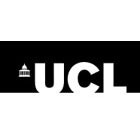This programme builds on UCL's world-class research strengths in epidemiology applied to the field of infectious diseases - a field that has become centre stage due to the coronavirus pandemic. You will focus on epidemiology for infections, including learning about new technologies (omics) and their applications in tackling global public health challenges. You will be equipped for a career in epidemiological research and policy teams, with a strong emphasis on public health. You will learn principles of basic statistics and epidemiology, transmission dynamics, and infection pathogenesis. You will also study infectious diseases in high, middle, and low-income settings, using examples in the classroom drawn from a range of conditions, including STIs, HIV, TB, influenza and other airborne viruses, and emerging, vaccine-preventable, vertically transmitted, and vector-borne diseases.
This course is suitable for applicants from a wide variety of undergraduate degree backgrounds, including biology, healthcare, maths, social sciences, or any related disciplines. We also welcome students onto the course from a wide variety of professional backgrounds, including researchers and non-governmental organisation workers, medical and veterinary doctors, nurses, and development practitioners. Students come from all over the world as well as the UK. This diversity increases opportunities to learn from other students' skills and experiences. Statistical knowledge and skills are not a pre-requisite, but applicants should demonstrate in their applications their willingness to engage with quantitative content and previous experience (from study or work) that will support them in this.






